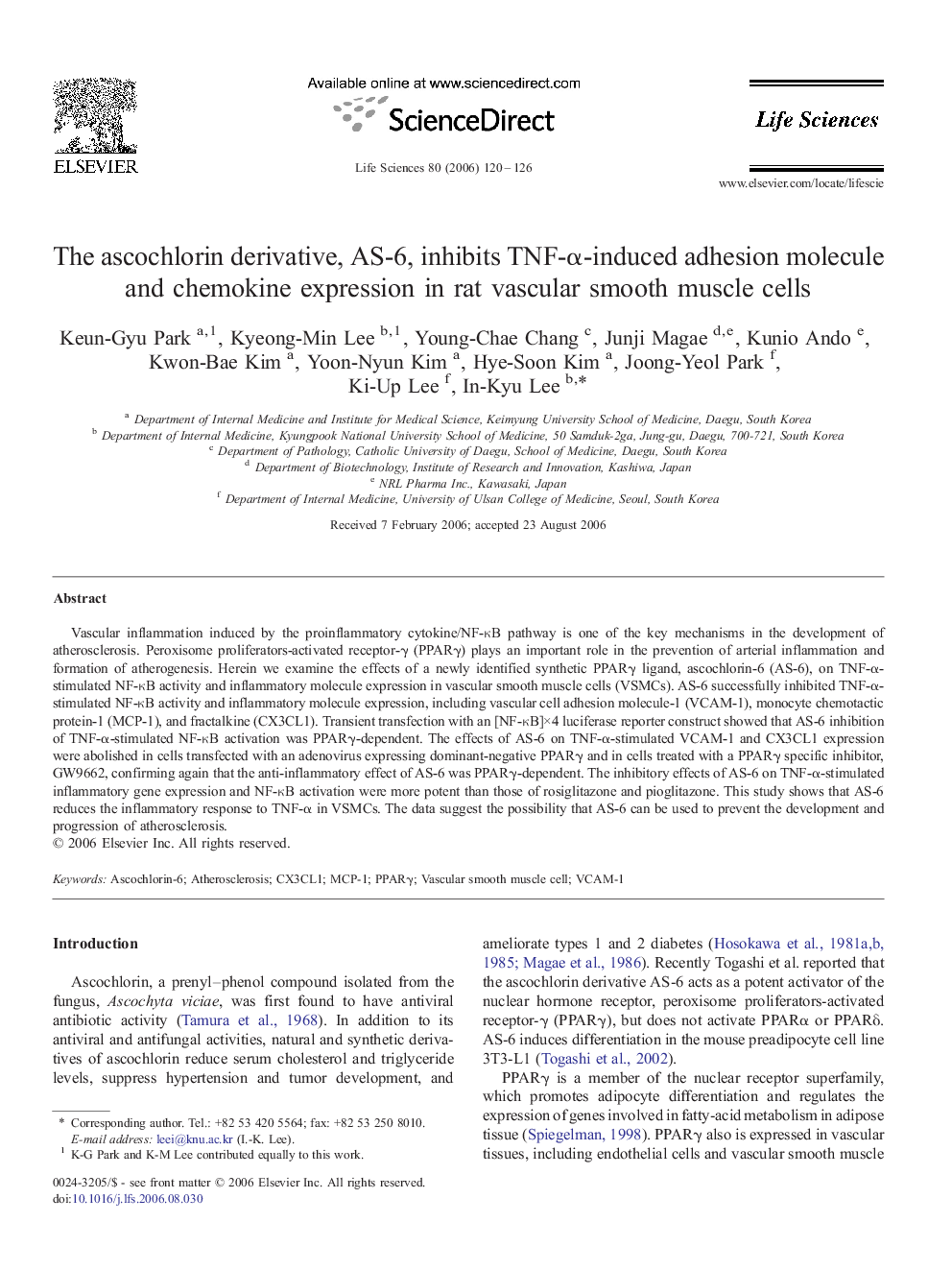| Article ID | Journal | Published Year | Pages | File Type |
|---|---|---|---|---|
| 2554548 | Life Sciences | 2006 | 7 Pages |
Abstract
Vascular inflammation induced by the proinflammatory cytokine/NF-κB pathway is one of the key mechanisms in the development of atherosclerosis. Peroxisome proliferators-activated receptor-γ (PPARγ) plays an important role in the prevention of arterial inflammation and formation of atherogenesis. Herein we examine the effects of a newly identified synthetic PPARγ ligand, ascochlorin-6 (AS-6), on TNF-α-stimulated NF-κB activity and inflammatory molecule expression in vascular smooth muscle cells (VSMCs). AS-6 successfully inhibited TNF-α-stimulated NF-κB activity and inflammatory molecule expression, including vascular cell adhesion molecule-1 (VCAM-1), monocyte chemotactic protein-1 (MCP-1), and fractalkine (CX3CL1). Transient transfection with an [NF-κB]Ã4 luciferase reporter construct showed that AS-6 inhibition of TNF-α-stimulated NF-κB activation was PPARγ-dependent. The effects of AS-6 on TNF-α-stimulated VCAM-1 and CX3CL1 expression were abolished in cells transfected with an adenovirus expressing dominant-negative PPARγ and in cells treated with a PPARγ specific inhibitor, GW9662, confirming again that the anti-inflammatory effect of AS-6 was PPARγ-dependent. The inhibitory effects of AS-6 on TNF-α-stimulated inflammatory gene expression and NF-κB activation were more potent than those of rosiglitazone and pioglitazone. This study shows that AS-6 reduces the inflammatory response to TNF-α in VSMCs. The data suggest the possibility that AS-6 can be used to prevent the development and progression of atherosclerosis.
Related Topics
Health Sciences
Medicine and Dentistry
Cardiology and Cardiovascular Medicine
Authors
Keun-Gyu Park, Kyeong-Min Lee, Young-Chae Chang, Junji Magae, Kunio Ando, Kwon-Bae Kim, Yoon-Nyun Kim, Hye-Soon Kim, Joong-Yeol Park, Ki-Up Lee, In-Kyu Lee,
